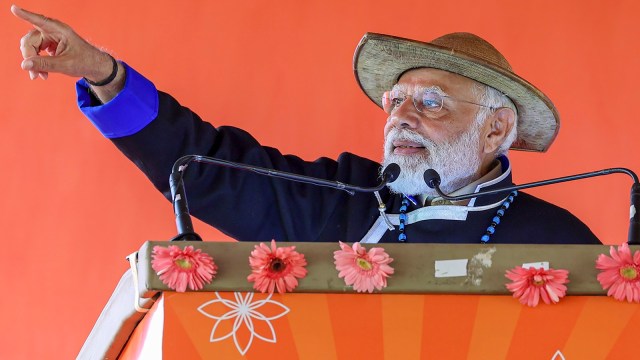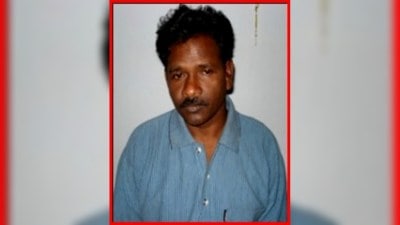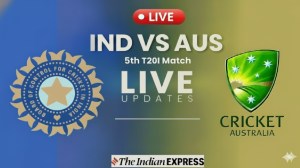EC asks Centre to halt sending out PM Modi’s letter on ‘Viksit Bharat’ via WhatsApp
In a letter to the MeitY Secretary, the EC asked the Ministry to submit a compliance report immediately.
 Addressing the citizens as “dear family member”, Prime Minister Modi had said their partnership is at the threshold of completing a decade and the trust and support of 140 crore Indians inspires and motivates him. (File Photo/PTI)
Addressing the citizens as “dear family member”, Prime Minister Modi had said their partnership is at the threshold of completing a decade and the trust and support of 140 crore Indians inspires and motivates him. (File Photo/PTI)The Election Commission on Thursday instructed the Union Ministry of Electronics and Information Technology to stop sending a letter by Prime Minister Narendra Modi from the account “Viksit Bharat Sampark” to WhatsApp users immediately.
In a letter to the MeitY Secretary, the EC asked the Ministry to submit a compliance report immediately. The Ministry had informed the EC on March 16 that the WhatsApp messages were sent on March 15, before the elections were announced.
“It was informed in that letter that though the letters were sent out before MCC period, but due to system architecture and network limitations it is possible that some letters have a delayed delivery,” the EC wrote.
The EC told the Ministry that it had received “complaints from various quarters that such messages are still being delivered on citizens’ phones”.
“Since the MCC is now in force, you are hereby directed to ensure forthwith that no further delivery of ‘WhatsApp messages’ take place during MCC period. A compliance report in this regard may be sent immediately,” the EC said.
The Trinamool Congress had on March 18 raised the issue, saying it was a violation of the Model Code of Conduct that came into effect from the announcement of Lok Sabha elections on March 16. In a letter to the MeitY Secretary S. Krishnan, TMC MP Saket Gokhale had said on March 18 that millions of WhatsApp users had received the letter from an account named “Viksit Bharat Sampark” registered by the Ministry after the MCC came into effect. He had asked the secretary to state what database was used for disseminating the letter, since users outside of India too reported receiving the letter.
“The message contained a letter from PM Modi & was open and unabashed propaganda and marketing for Modi & the BJP. Here’s the catch: thanks to the usual incompetence of the Modi Govt, a majority of these messages were received by people AFTER 4:30pm on 16th March. This is the time when the election Model Code of Conduct came into force (sic),” Gokhale said on X.
Industry experts say that the client in this case – MeitY – would have engaged a third party agency or Business Service Provider (BSP) for mass transmission of these messages. The database would have been either been provided by MeitY to the BSP or generated by the BSP.
While WhatsApp was used as an intermediary or platform to transmit the data by the BSP on behalf of MeitY, it would not have access to the database.



- 01
- 02
- 03
- 04
- 05




























